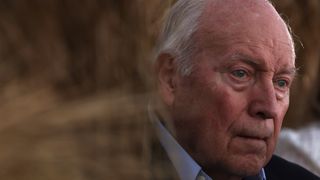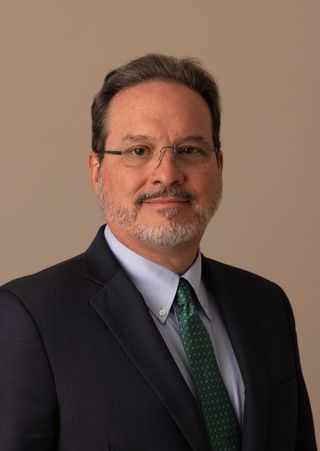Thanks to Hollywood and his own gruff demeanour, former Vice President Dick Cheney is being remembered this week as the most powerful and controversial American Vice President in modern history. Both statements are accurate but working in close proximity to the Vice President for almost five years, I saw other dimensions of the man that also merit attention. The main thing I think the movies and reporting get wrong is that Cheney was not obsessed with power for power’s sake.
In the aftermath of 9/11, the broad assumption was that the United States and our democratic allies would be coming under relentless terrorist attacks in malls, churches, and public spaces. More terrifying was the spectre of terrorist organisations obtaining nuclear, chemical, or biological weapons to use in those attacks. Cheney’s hyperfocus on that threat may have led to policy and strategy mistakes, but it was motivated by a patriotic sense of mission and not some plan to take over the American Government.
Behind the scenes Cheney was extremely pragmatic. He supported diplomacy with North Korea and China because he believed the major challenge of the day was preventing catastrophic attacks on the homeland, we had to manage other problems facing the country with a balanced approach. I was involved in those talks with both Pyongyang and Beijing and the Vice President pushed for a hardline, but not an impossible one.
Cheney was also an “allies first” leader in the White House. His chief of staff and national security advisor, Scooter Libby, had lived in Japan, appreciated regional expertise, and made certain I was sitting next to the Vice President for most of his key meetings with visitors from Japan, South Korea, or Australia. My sense was that the Vice President was well liked by John Howard and others in the Australian Government.
The image of him manipulating and undercutting President George W Bush is central to the Hollywood myths, but I never really saw it. He would cut into the Oval Office to make his case directly to the President on issues which frustrated Secretary of State Colin Powell and others in the cabinet, but I never saw the Vice President disobey or undermine the President once he had made a decision.
The last time I saw Cheney was at a dinner for former Prime Minister John Howard in Washington. The VP looked frail and had a musette bag over his shoulder with an external pacemaker. He struggled with heart disease throughout most of his career and it is noteworthy that he stayed in government, where many would have wisely taken less stressful positions in think tanks or academia.
The Darth Vader image stuck because Cheney cultivated it himself. He tried to create an aura of shadow power for his staff, insisting that they see the calendars for the NSC or other staff but not reciprocating. Some of his staff acted on that aura — most frustratingly for Australia in the case of Al Qaeda fighter David Hicks, whom the rest of the US Government was prepared to return to the Australian Government for custody until the entire process was slowed down by the VP’s lawyer. Eventually the veterans at the NSC learned how to work around the troublemakers on the VP’s staff and to work with those who did not believe their own mythology and wanted to get things done with allies. That was almost always the case with Cheney himself. New York Times reporter Peter Baker’s book on Cheney, Days of Fire, captures that dynamic much more accurately than Hollywood did in the feature film about the VP.
In the second term of the Bush administration, Condoleezza Rice eclipsed the vice president as the main voice on national security and Cheney lamented the fact that President Bush did not pardon Scooter Libby on charges of obstruction of justice (related to his recollection of events in a special counsel investigation into leaks regarding CIA agent Valerie Plame). President Bush granted very few pardons, particularly for people who worked for him even indirectly. The president had his father’s sense of probity when it came to the ethics of the White House. My own view was that Scooter served his country with distinction, particularly on Asia policy, which could have been an afterthought in the war on terror without the active involvement of senior officials like Scooter and former Deputy Secretary of State Rich Armitage. The irony was that Armitage and Scooter had once been close friends but ended up on different sides in the whole investigation of the Valerie Plame affair. Politics can be unforgiving.
Cheney and his daughter Liz were implacable opponents to Trump’s attempted take-over of the Republican Party. It cost her a seat in Congress and made the former vice president an enemy of the MAGA world. Characteristically, the White House had no comments on the passing of the former Vice President beyond the ungracious acknowledgment from the White House press spokesperson that Trump was aware Cheney had died.
In politics and government as in life, there are no perfect angels. There is no undoing the controversies surrounding Dick Cheney — many of which were of his own design — but we should not live in such a cynical world that genuine patriotism and sense of duty are themselves minimised or vilified.






